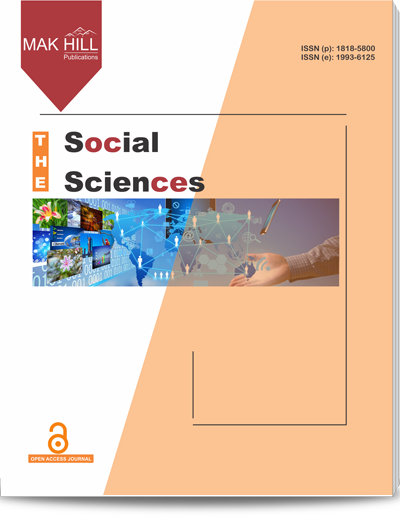
The Social Sciences
ISSN: Online 1993-6125ISSN: Print 1818-5800
Abstract
The convergence of computers, the internet and audio‐visual communication is a prime example of how the quick development of information and communication technology has brought about revolutionary developments in the electronic and digital domains. This has significant positive and negative ramifications, especially for developing nations. The emergence of new difficulties in the field of intellectual property rights has created a situation where the e‐commerce law can be exploited and used to the benefit of right holders. This study employs a descriptive‐analytical methodology to investigate the legal pathology of e‐commerce under Iranian law. By analyzing factors including e‐commerce barriers, regulatory implications and commercial inefficiencies, the study reveals their important impact. The results highlight how, in terms of Iranian law, e‐commerce is among the fastest and most effective business practices worldwide, promoting speedy and safe transactions. Information and communication technology has advanced significantly over the last few decades, changing people's lives and opening up new commercial and consumer options. E‐commerce has become a vital part of people's lives, enabling transactions in a variety of industries. The explosion of e‐commerce around the world has changed customer behavior in addition to retail and logistics. The goal of the article is to assess the current state of affairs and pinpoint deficiencies by exploring the legal analysis and pathophysiology of Iran's e‐commerce legislation. In order to answer its central questions, this study takes a descriptive‐analytical approach and uses data analysis. Data is collected from a variety of sources, such as books, papers and library resources, as well as interviews with professionals in the field of commercial law. Thematic analysis and coding are applied to the data, extracting and classifying concepts according to their similarities and differences. Examining the legal aspects of e‐commerce in Iran reveals its complex character under Iranian legal frameworks. The report emphasizes how important e‐commerce is to promoting effective domestic and international business operations. Nevertheless, the study points out flaws in the current legal system, such as inconsistencies in the title and content of the legislation, ambiguity in the timing of signing electronic contracts, and contradictions in insignificant articles. A number of laws and rules, such as the Electronic Commerce Law, policies and extensive development projects, control e‐commerce in Iran. The study emphasizes how important these legal bases are for creating the e‐commerce infrastructure, educating the public, creating an e‐commerce culture, and advancing fair competition by getting rid of barriers that discriminate against businesses. In Iranian law, the evidentiary value of electronic trade is assessed from the perspective of the functioning nature of the legal system. According to the research, electronic evidence that is provided in the form of data messages fulfills all legal requirements and is comparable to traditional writing. The study highlights the significance of maintaining the original function of referenced documents and tackles issues of the validity of electronic documents. The complex legal environment surrounding e‐commerce in the Islamic Republic of Iran is clarified by this research. The report highlights the necessity for ongoing legal adaptation to the changing e‐commerce ecosystem while acknowledging the revolutionary influence of technology on business. The study recommends that current regulations be reviewed and modified to better meet the needs of modern society and create a favorable climate for the expansion of e‐commerce in the nation.
How to cite this article:
Hossein Dakhili, Hanieh Zakerinia and Mehrdad Hasanzadeh. Legal Pathology of E‐Commerce in Iranian Law.
DOI: https://doi.org/10.36478/10.36478/maktss.2024.1.24.37
URL: https://www.makhillpublications.co/view-article/1818-5800/10.36478/maktss.2024.1.24.37